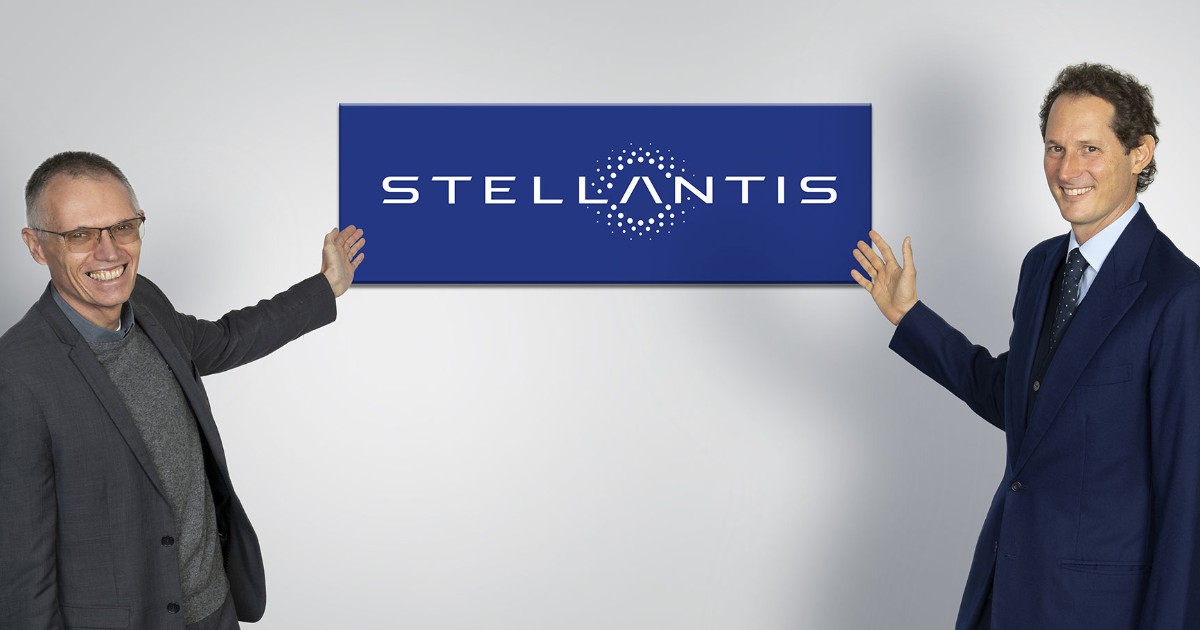Yet another attack on “brutality of change”Imposed by the EU, ie the step a electric motors only in 2035, which “creates social risks“. Unless, of course, the additional cost (50%) of electrical technologies is paid by the states “at least until 2025”. Then a new warning to the government: “A year ago I noticed that in Italy the production cost of a car was significantly higher, sometimes double that of factories in other European countries, despite a lower labor costs. We will talk about it again at the end of 2022. Any approach brutal it would have been inappropriate ”. Finally, the surprise announcement that the match for the battery factory in Termoli, announced last summer as a done thing and celebrated as such by the Minister of Development Giancarlo Giorgetti, it is by no means closed: “We are negotiating with the government, but we haven’t finished yet ”. The CEO of Stellantis, Carlos Tavares, back to beating cash. And, right on the day it goes visiting right at the Molise factory where today i 2,400 employees they enter and leave the redundancy fund, makes it known that that investment is still in the balance.
Tavares speaks away Corriere della Sera, after the requests – “if electrification it will not come sustained there will be an impact on growth of the electric car market and this would generate others consequences“- delivered to the government on January 6 with two interviews a Republic e Press, headlines of the group Gedi which, like Stellantis, belongs to Exor. The number one of the group born exactly one year ago from the merger between Fca e Peugeot-Psa charges with the usual attacks on electrification, answering the not-so-neutral questions of Federico Fubini. For example: “The EU Commission has a reasonable approach to the energy transition or does it put an end to combustion vehicles too soon? It wasn’t a better target on Co2 that respected the principle of technological neutrality? “. Answer: “Electrification is one political choice“,” There were cheaper and faster ways to reduce emissions “and” not looking at the entire life cycle of electric cars is reductive “given the carbon footprint created by the manufacture of the battery itself pollutant. Known issue, which other manufacturers are addressing with technology by focusing on recycling and recovery of raw materials.
What is Stellantis doing instead? Last spring the group had formalized the decision to produce their own batteries in Germany, in Kaiserslautern (a project for which it has collected 400 million in public grants) and in Douvrin in France. In July, during the public event dedicated to electric vehicles, the announcement of the “allocation of the third European site in Italy” arrived in Termoli. Not without protests from Piedmont, since Turin was also in the running. “Beautiful and awaited news. As Mise we worked to make this happen ”, Giorgetti commented. But now it turns out that nothing is decided. By meeting the labor unions, the manager said the site is “eligible” but did not confirm the investment in the gigafactory, reserving the right to provide details during the presentation of the group’s business plan scheduled for March. Trade union representatives fear repercussions on employment levels if the choice is not confirmed. And they asked him for clarification on the prospects for the future of the workers. But they got no answer. “We do not allow any second thoughts,” he attacks Roberto Di Maulo, general secretary of the Fismic Confsal. Ferdinando Uliano e Marco Laviano from the end cisl they ask the government “an urgent call to have a clear discussion on the gigafactory” and “to have a clarification on why the construction was not completed positively 7 months after the announcement”.
For Tavares, the obsession is i costs. Obviously, the promise not to close factories in Europe also hangs on: “I usually keep my promises, but we must also remain competitive”. And the costs in the Italian factories are higher, he says. “This has to do with theorganization of production, which needs to be improved. If we apply the good practice that exist in our group, Italy itself will have good potential. A particular problem that concerns you is the oversized price of energy. We had one extremely virulent discussion with energy suppliers on this point “. The landing point is always the same: incentives paid by the state are needed. Stellantis looks and waits but “at the end of 2022 we will talk about it”.
The translation of Giorgio Airaudo, general secretary of Fiom Piemonte, is that “a communication campaign dedicated to Italy is underway by the CEO of Stellantis Tavares: we have moved from the newspapers of Gedi, controlled by the common shareholder Exor, to the interview with Corriere della Sera. I am notices to Italy. The government and local authorities, pending the election of the President of the Republic, are responsible for the industrial future of the car which remains one of the resources per country “. In the face of the group’s requests, according to the trade unionist, “we need a plan that agrees on investments in Italy for all sites. We cannot know from the newspapers that the agreement for the Gigafactory of Termoli is not completed, the question is what does the Minister of Ecological Transition do “. And again: “Faced with the repeated evocation of the risk of social problems, it is necessary for the government to adopt, alongside the plan, social safety nets useful for converting skills and professionalism from thermal to electric, to prevent layoffs. We cannot hang on to unilateral decisions that will be announced at the end of the year, we will not allow the workers to pay the bill “.
–


